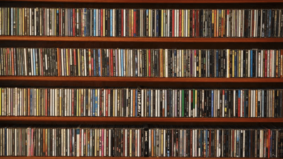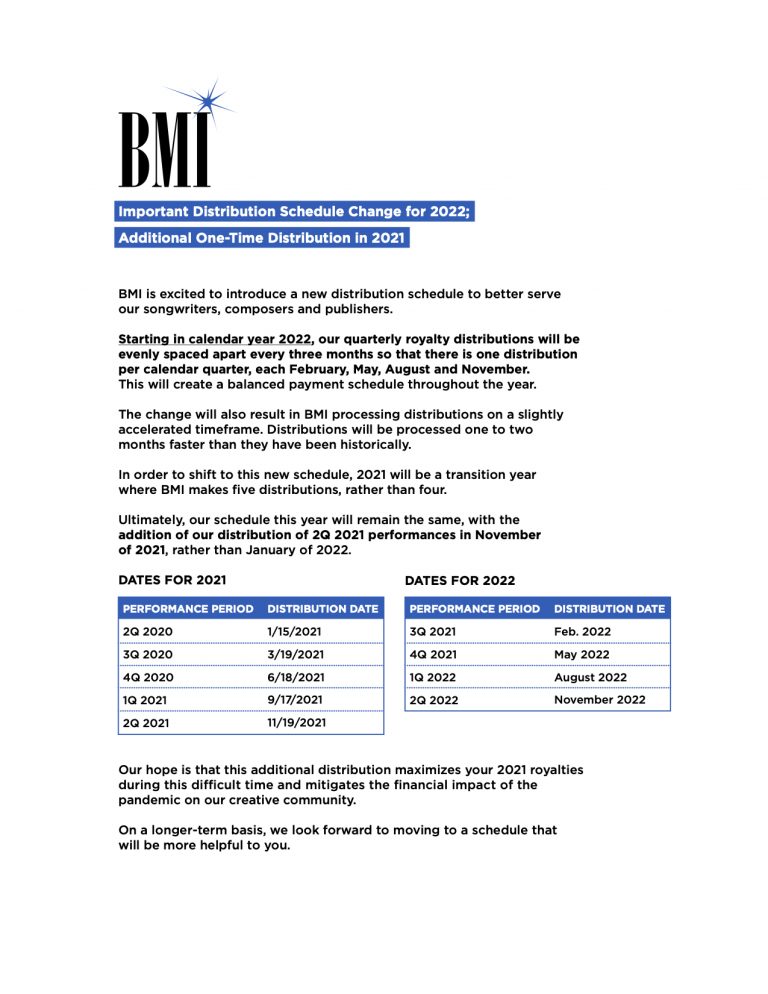SHOULD YOU SIGN WITH A NON-EXCLUSIVE RETITLED LIBRARY?
Get the facts before you decide.
Many composers and songwriters are lately being offered what seems like a deal too good to pass up: get film/TV placements of their music and a share of sync fees from non-exclusive distributors while retaining 100% of their copyrights. While this may appear to be an irresistible bargain on the surface, it is essential that writers fully understand the ramifications of this business model in order to make an informed decision.
What Is Non-Exclusive Retitling?
First, let’s clarify what is meant by the term “retitled libraries”. This term does not refer to libraries that exclusively own the rights to their works and for whatever reason decide to re-release the works under alternate titles; it is a library’s prerogative to re-release or repurpose tracks in such a manner. Rather, for the purposes of this article, this term shall refer to libraries that engage in the practice of retitling tracks without obtaining exclusive rights to the works. For these libraries, retitling is simply a way to market and license non-exclusive content and collect performance revenues by registering existing works under different titles.
How Does It Work?
Retitled libraries solicit content from composers or songwriters promising that they will “retain ownership” in the works and simply license their tracks on a “non-exclusive” basis. They offer to retitle the works and share publishing revenue generated from their placements of the retitled tracks. (There is generally no upfront cost involved for the writer, although a few retitled libraries have been known to retain all or part of the writers share of performance royalties- a definite “red flag”). This sort of arrangement can obviously be appealing to a writer who might have dozens of songs, scores, demos and other unused musical material just “sitting on the shelf” gathering dust. Why not monetize these tracks to generate some extra revenue? For that matter, why not sign the same tracks with as many retitling services as possible to maximize income? Before signing away your tracks, let’s delve a little deeper and explore some of the repercussions of these deals.
One Song, Many Titles
The most obvious drawback with this model is apparent on the client side of the equation. With more and more companies dumping retitled content onto the market, situations are starting to arise where multiple parties are claiming ownership in the same work. In fact, several top Hollywood music supervisors are now refusing to accept material from retitled libraries after being pitched the same song from different sources under different titles (and at different rates!). The potential for confusion has led at least one major studio to issue an edict stating that they will only work with music companies that represent their content exclusively.
Similarly, for broadcasters or other library clients who are often highly sensitive about market exclusivity, it could be devastating to sign a deal with library X only to hear the same tracks used by a competing station who signed a deal with library Y. Such a scenario could easily happen if both libraries are offering retitled music.
On an industry level, it is hard to argue that the industry will benefit from situations where multiple parties are claiming rights to the same song and bidding against each other for the same placement. This practice only serves to further erode sync fees and devalue music in an already hypercompetitive marketplace, as well as feed cynicism and mistrust towards the production music industry in general. There is, after all, a certain aspect of duplicity surrounding the notion of the same piece of music having multiple title aliases depending on the situation or vendor. Such confusion, if unabated, will just encourage more unreported music uses and piracy due to the lack of publishers’ ability to effectively monitor and police their works. Furthermore, at a time when music rights are under siege by legislators, broadcasters and technology companies alike, it is safe to say that adding more confusion and uncertainty to the music rights landscape is probably not a sanguine development for the industry.
Identical Fingerprints
It is widely accepted in the music community that fingerprinting , in one form or another, holds the key to performance monitoring in the years ahead. ASCAP and BMI have already tested and implemented fingerprinting technology on a limited basis (Mediaguide and Landmark, respectively), and a more extensive rollout of these technologies is planned in the near future. Since every piece of audio contains a unique “fingerprint”, the day will soon come when digital algorithms will automatically detect each piece of music and (ideally) every performance will be tracked and paid- without the hassle of cue sheets or the burden of physically watermarking every track. Most libraries consider fingerprinting to be a critical step towards improving the fairness and accuracy of PRO distributions. In addition to performance tracking, fingerprinting systems are also being increasingly used by libraries to monitor sync uses of their catalog and by broadcasters to automatically generate cue sheets.
All of these scenarios present an obvious conundrum for retitled music companies: since their audio files are not unique, each detection can no longer be linked to a unique title record, making accurate performance identification virtually impossible. Clearly, the practice of retitling only serves to stymie these important initiatives and therefore runs counter to the best interests of the industry.
Legal Challenges Loom
It is only a matter of time before legal challenges arise from these practices. Whose title of a song was ultimately used in a film or TV show if multiple versions were pitched? Which title and which master are being referenced in a composer contract? Is anyone vetting these tracks for rights clearances or potential infringement issues? Do these companies even have the legal right to license these tracks, considering that copyrights are based not on title (titles are not copyrightable) but on the underlying composition and sound recording? How many non-exclusive catalogs have unwittingly entered into exclusive overseas subpublishing deals? Only time will tell how these issues will play out on the legal front.
The Artist Perspective
Industry considerations aside, what’s in it for the artist? The argument is often made that this model “helps artists” by allowing them to “retain control” while giving them “exposure” and generating “additional income”. To some extent, this may be true; a writer can sign a track with a retitled library while still releasing it on an album or otherwise exploiting it themselves. But often overlooked is the downside: once a writer signs a non-exclusive deal, that basically preempts any future possibility of signing an exclusive deal with another library or label. No reputable exclusive library is going to acquire or distribute a track that already exists in other permutations in the marketplace, and such exclusive libraries represent the majority of library music use in film and television. What may seem like a great deal is actually a dead end.
Writers also tend to overlook the fact that non-exclusive libraries are less likely to actively promote or pitch their tracks since they have less incentive to do so. These companies know that the same recordings might be available on other services, so often the tracks are just dumped on a drive or server and forgotten.
Another little known but critically important fact is that non-exclusive retitled catalogs miss out on significant revenue streams related to international distribution. Since libraries are generally represented by territory on an exclusive basis, retitled libraries technically cannot enter into these deals (to the extent that they do anyway, they are in breach of their contract). To drill down further, in many foreign territories music licensing is strictly controlled by mechanical copyright societies such as MCPS (UK), SDRM (France) and AMCOS (Australia). These societies, who are responsible for the vast majority of licensing in their respective territories, set the rates for music licenses as well as collect and distribute payments to composer and publisher members. In order for works to be represented by these societies, they must be the exclusive agents for their territory. Since non-exclusive content is often made available on websites or drives without regard to international borders, these catalogs do not qualify for registration and consequently their international income potential is severely limited. In the event a publisher or website representing non-exclusive content does attempt to register tracks with one of these mechanical societies, both the writer and the publisher will be in a potential breach of contract situation.
Last but not least is the new title itself: is it as effective and appropriate as the original title? Song titles should not be randomly generated or done in bulk fashion; they are more important than ever as they play a critical role in determining which songs get selected and auditioned by clients. It is not an obvious thing to effectively retitle a song with lyrics; by way of example, can you think of an alternate title for any of these hit songs: “Beat It”, ‘Like A Virgin”, “Hard Day’s Night” or “Are You Lonesome Tonight”? In lieu of donning a new title, some retitling services have resorted to simply adding a catalog number to precede the original title, i.e. “xyz001-My Love”, “xy002-My Love”, etc. It is hard to imagine how this scheme will accomplish anything except raise the amount of confusion among writers, clients and PROs to a whole new level.
Ultimately, writers need to weigh the perceived benefits of retitling against the potential pitfalls:
- Devalues your music
- Potential licensing disputes
- Potential legal challenges
- Risk of being blacklisted by film/TV clients
- Can create confusion around your catalog
- Can attach inferior titles to your songs
- Limited potential for international income
- Performances not tracked by fingerprinting
- No possibility of exclusive deals
- Limited potential for infringement claims with non-exclusive representation
A Song Is Still A Song
In conclusion, the practice of retitling does not pose a problem if the same entity, or combination of entities, controls the rights to all title variations of the same track; however it is very much a problem when multiple entitles lay claim to the same work non-exclusively based solely on title permutations.
Amidst all the technological change and upheaval buffeting the music industry over the past several years, some things still haven’t changed: a song is still a song and should not have multiple aliases depending on the situation or “who got the placement.” Clearly, the best strategy for composers and songwriters is to take the time to craft original, high quality music and develop a solid relationship with a reputable library that can represent their tracks exclusively and invest the necessary time and resources to properly tag, organize, promote and pitch their tracks. Integrity still counts, especially in the digital age.






